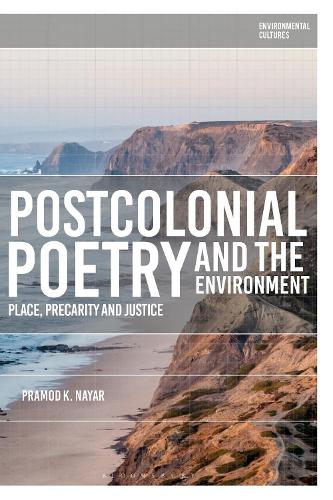
Postcolonial Ecopoetics: The Poetry of Planetary Precarity
(Hardback)
Publishing Details
Postcolonial Ecopoetics: The Poetry of Planetary Precarity
By (Author) Dr Pramod K. Nayar
Bloomsbury Publishing PLC
Bloomsbury Academic
27th November 2025
United Kingdom
Classifications
Professional and Scholarly
Non Fiction
Literary studies: poetry and poets
Literary studies: from c 2000
Physical Properties
Hardback
240
Width 156mm, Height 234mm
Description
Examining a wide variety of poets from the last three decades of the 20th century to the present, from Asian, African, South American and settler colonies such as Canada and Australia, this book maps an ecopoetics of vulnerability and resilience.
While environmental fiction has been widely studied, ecopoetry has not received the same level of attention. This book studies the work of over 50 poets from the Global South and the formerly colonized, including John Kinsella, Tanure Ojaide, Linda Hogan, Kofi Awonoor, Okot pBitek, Ben Okri, and Sherwin Bitsui. It traces an ecological consciousness that cuts across human and nonhuman, living and non-living domains. It is interested in the making, unmaking and remaking of worlds and meanings in the age of cataclysmic climate shifts, while aware of the histories that fashioned the planet in unjust and unequal ways, and to which the poets bear witness, as well as propose alternative ways of seeing and meaning-making.
Author Bio
Pramod K. Nayar teaches at the Department of English, University of Hyderabad, India. His most recent books include Vulnerable Earth: The Literature of Climate Crisis (2024), Nuclear Cultures (2023) Alzheimers Disease Memoirs (2021), The Human Rights Graphic Novel (2021), Ecoprecarity: Vulnerable Lives in Literature and Culture (2019), Bhopals Ecological Gothic: Disaster, Precarity and the Biopolitical Uncanny (2017), and others. His essays have appeared in Modern Fiction Studies, South Asian Review, South Asia, Narrative, Celebrity Studies, Asiatic, Journal of Postcolonial Writing, Prose Studies, a/b: Auto/Biography Studies, Biography, and Postcolonial Text, among others. Nayar also holds the UNESCO Chair in Vulnerability Studies at the University of Hyderabad.
